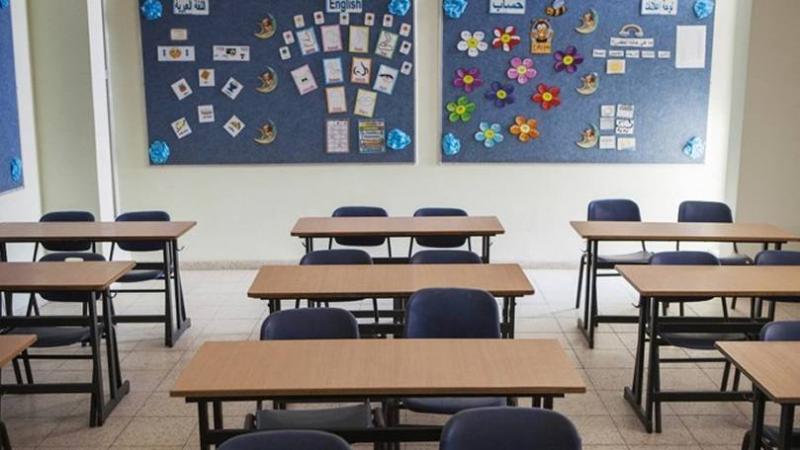The Teachers' Compensation Fund for private school teachers has never held the "delinquent" schools accountable for failing to pay the dues. Throughout the fund's history, school administrations have remained protected, and no education minister has intervened to shut them down due to these delays. Today, more than ever, the educational institution's failure to pay its contributions puts teachers at risk when it comes to receiving their already deducted compensation from their monthly salary (6% is deducted from their salary and 6% is the school's contribution to the fund). This may force them to accept a reduction in their rights and enter negotiations over what is rightfully theirs.
**Paying the Arrears**
So far, Leila (a pseudonym) has not received the six grades stipulated in the salary scale issued in 2017 because her school in Baalbek had not implemented the scale when she retired. It later became clear that the school itself had not paid its dues to the fund for all teachers over the past six years, and the fund is demanding installment payments. However, Leila asks, "Which is more important: paying the outstanding dues for all teachers over six years in installments, or paying the contributions for three retired teachers during this period and facilitating their access to the six grades they were deprived of?"
Leila and her retired colleagues are convinced that the fund should exert pressure on the schools, and the teachers' union should make efforts in this regard, "as there is no law governing our relationship with our schools." They demand clear statements from everyone with unified legislation: the Ministry of Education, the compensation fund, private school owners, and the teachers' union. Retired teachers feel like they are outside the state's calculations, viewing themselves as subjects rather than citizens.
**Collecting the Compensation**
In reality, the crisis for retired private school teachers is twofold. The issue lies not only in the amount of the salaries but also in collecting compensation and pensions from the banks. Some have been receiving their salaries for months in the form of shopping cards from supermarkets under the pretext that the compensation fund does not transfer cash.
Father Youssef Nasr, the coordinator of the Union of Private Educational Institutions and the general secretary of Catholic schools, states that the relationship of retirees is with the compensation fund and not with the schools. The board of directors is responsible for strategizing to ensure the fund's sustainability. The responsibility of the schools' union is to select appropriate representatives for the board to participate in finding solutions.
However, some retired teachers claim that the union pressured to exclude the budget law, which includes benefits for public school teachers, from applying to private school teachers. Nasr responds, "Legislation doesn't matter if there isn’t money in the state. The proof is what happened with the 500 billion Lebanese pound law (allocating 350 billion pounds for private schools and 150 billion pounds for public schools), which was approved by the parliament but has not yet been implemented."
Regarding the retirees' issue with banks, Nasr asserts that "the liquidity of funds is our collective responsibility, both for school owners and the teachers' union, to pressure the central bank."
**Salary Not Compensation!**
"A social situation characterized by unprecedented harshness," says Ziad Baroud, a lawyer for the teachers' union since 1996. It is noteworthy that the number of teachers opting for a pension instead of end-of-service compensation has increased significantly, which is justified since the compensation doesn't exceed a handful of hundreds of dollars.
Baroud points out that the budget law undermines a legal principle established since 1956, the principle of legislative unity, and says, "I do not know why it was overlooked." He refers to the proposed law he is working on to ensure that benefits in the budget are applied to private school teachers and to prevent the arrangements made by schools regarding teachers' salaries from being piecemeal and subject to change and randomness.
Does the proposed law regarding legislative unity need Cabinet approval? Baroud states, "Not if it is presented as a proposal, with reservations regarding legislation amid the vacuum."
Baroud is reportedly working on a second draft, which he calls rational, specifically for retirees, taking into account increasing the revenues of the pension fund, while ensuring the continuity of the compensation fund and preventing it from suffering any setbacks, thus protecting the fund which belongs to the teachers.
Regarding the responsibility for addressing the conditions of retirees, Baroud emphasizes that the primary responsibility lies with the political authority, stating, "There must be a minimum contribution from the state to lighten the burdens, while part of the responsibility falls on some schools that do not pay their dues to the fund."




